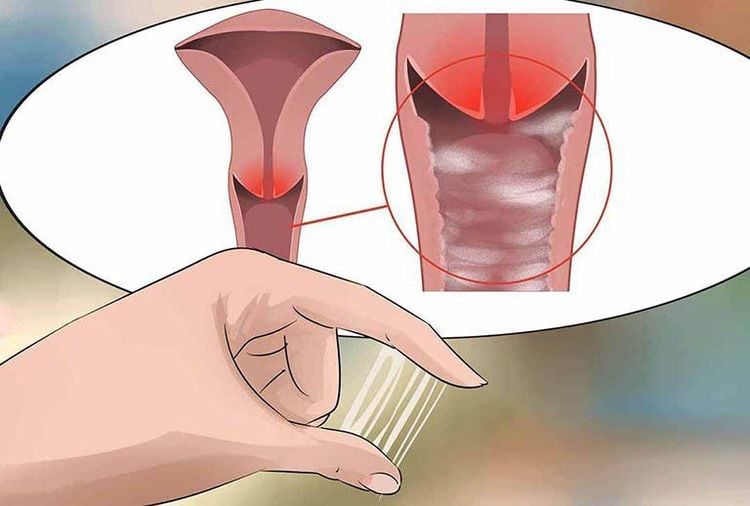Post-abortion infection is considered a very serious complication, with sequelae not just limited to inflammation and infection of the genital tracts that might lead to infertility, but also life-threatening conditions. However, recognizing signs that may signal infections after abortion is still challenging, given that these are similar to other common conditions. Let’s take a look at possible signs that might point to post-abortion infection in the article below.
1. The danger of abortion:
Abortion, both in the form of medication or surgery, might have dangerous consequences and complications relating to the genital tracts, the ability to conceive, or even the life of those who abort:
- Abortion using medications: This method uses oral abortifacient drugs to stop the development of the fetus, while also causing the uterus to contract and push the fetus out. This method is used for fetuses from 5 to 7 weeks old. Before carrying the procedure, the patient will have their blood tested, ultrasound,... to evaluate the condition of the fetus. At home and self-willed abortions will not ensure the health of patients and might have serious effects on the patients’ ability to conceive long-term. In some cases, the patients might experience heavy cramps and uterine contractions, if not treated promptly, might cause sepsis and life-threatening complications.
- Remaining remnants after surgical abortion: This happens in cases where there are still fetal remains in the uterus after abortion, which reflects an unsuccessful surgery. This complication will cause serious consequences to the patients’ health, specifically their reproductive health such as anemia, genital tracts infections, uterine rupture, infertility, fetal deformities in future pregnancies.

2. Signs of infection after abortion, both by medication and surgical means, are as followed:
2.1. Abnormal vaginal bleeding:
Post-abortion vaginal bleeding is commonly seen, with the degree of bleeding depending on individual state of health. However, the majority of patients only bleed an estimated similar amount of blood to their regular period for the first few days after the procedure and the amount would decrease in the following days. The regular bleeding time post-abortion would be from 7 to 15 days. In the case of infections after abortion, the amount of bleeding would be more than usual and have some other characteristics such as:
The amount of blood spills over two big-sized pads within 1 hour, and this continues on for more than 2 hours;
Prolonged bleeding with big blood clots, which may cause hemorrhage which requires emergent medical attention as soon as possible;
Prolonged and persistent vaginal bleeding for more than 12 hours without sign of cessation;
Vaginal discharge with abnormal color such as milky along with odor
2.2. Extreme abdominal pain
Normally after abortion, patients might experience abdominal pain along with vaginal bleeding. In the case of abortion done by medications, pain and accompanied bleeding will appear within 2 to 4 hours after taking the medication. The most intense pain would be at the moment the fetus is pushed out of the uterus and then gradually decreases in intensity. Pain usually happens in episodic cramps. In the case of abortion done by surgery, the pain would commonly be intermittent for the following week.
These abdominal pain episodes can usually be controlled by painkillers such as paracetamol, ibuprofen… If the pain does not cease but increases in intensity after a few days, combining with bleeding or other symptoms, the possibility of infection post-abortion needs to be considered and medical attention should be seeked out as soon as possible.
2.3 High fever and shortness of breath:
One of the signs of infection after abortion is high fever. In the first week following the abortion procedure, patients need to check their body temperature at least 2 times per day. Within the first two days following the procedure, patients might experience mild fever. Fever above 38°C along with dry mouth, chills or tongue plaques and no cessation even after using antipyretics can be a sign of infection post abortion, in which patients need to seek out medical attention as soon as possible.
Check out:
2.4. Irregular menstruation
One of the signs of infection post-abortion is irregular menstruation. A regular menstruation would have little clots, bright red blood and odor. Patients after abortion whose periods have changes in their menstruation such as an increase in bleeding amount, a darkened shade of red or an increase in clotting with bad odor… are all signs of infection post abortion.
2.5. Abnormal vaginal discharge
Discharge is an indicator that reflects accurately the function of the female reproductive system. After the abortion procedure, changes in vaginal discharge need to be noted by patients. In the case of excessive vaginal discharge, changes in odors and colors can be a sign of post-abortion infection. The patients should check for other inflammatory signs for timely intervention.
2.6. Inflammation of the genital tracts
Due to the combined effects of abortion procedures and a lack of cleaning genital area, bacterial and fungal growth around the area might ensue. This will lead to certain inflammatory conditions of the reproductive tract with symptoms such as odored discharge, itching, pain and bleeding while having intercourse…

3. Ways to prevent infection post abortion:
All the symptoms and complications after abortion affect immensely on the health of patients. However, if the procedure was done in trusted and large institutions, the risk of having infection is less likely. Therefore it is advised for patients to check up at trusted and high-quality hospitals to prevent these complications. Additionally, patients should note:
- Prior to abortion, screening for Sexually Transmitted Diseases (STDs) needs to be carried out. In the case of positive results, patients need to be treated prior to abortion to prevent post abortion infection;
- Use pads instead of tampons post abortion to lower the risk of infection;
- Follow the doctor’s instruction and advice on issues such as diets, sexual intercourse, personal hygiene;
After abortion, patients should not shower by cold water, instead cleanse with a towel or shower with hot water. Limit bathing because of increased risk of bacterial exposure;
Patients need to abstain for 4 to 8 weeks after abortion. Early intercourse will increase the risk of exposure to bacteria, causing infection; - Cleaning of the genital area needs to be done from the front to the back, without inserting anything including fingers into the vaginal canal, do not use products that might cause hypersensitivity;
- Do not drink alcohol, smoke or use addictive substance after abortion. These directly influence the capacity of healing done by the body, diminish the effect of medications and increase the risk of infection;
Limit foods that are high in fats, fast foods and products with caffeine;
In conclusion, infection after abortion procedures can lead to serious effects and complications for the patients. Therefore, if you wish to end a pregnancy due to an unwanted or any other cause, it is best to take precautions and visit trusted medical facilities for accurate management and diagnosis.
To arrange an appointment, please call HOTLINE or make your reservation directly HERE. You may also download the MyVinmec app to schedule appointments faster and manage your reservations more conveniently.













